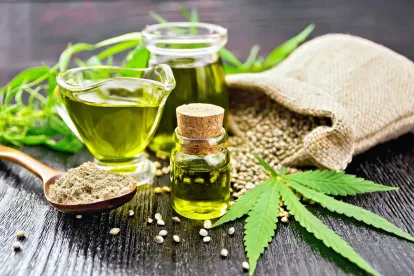On December 29, 2022 the French Conseil d’Etat (the highest French administrative court) rendered a decision that was eagerly awaited by all those involved in the CBD industry which lifted the ban on the sale of CBD flowers and leaves to consumers.
Terminology
For those who are not familiar with these products, Cannabis is the Latin name of the plant whose common name is hemp. All the parts of the plant are used: seeds, leaves, stems, flowers.
Cannabis is native to Asia but there are many varieties that are grown in very different conditions from the Afghan mountains to the equatorial zones but also in Europe.
The two most known molecules of this plant are CBD (cannabidiol) and THC (delta-9-tetrahydrocannabiniol). It is the THC which presents psychotropic properties and which is likely to create an effect of dependence.
The level of THC in the plant varies significantly from one variety to another.
Evolution of the French regulation
An old French decree of August 22, 1990, implementing Article R. 5132-86 of the French Public Health Code authorized the cultivation, import, export and use of hemp provided that:
– the plant was from one of the varieties of cannabis sativa L. authorized by the decree,
– only the fibers and seeds of the plant were used,
– the plant itself contained less than 0.20 % THC, this authorized rate applying only to the plant and not to the finished product which had to remain free of any trace of THC.
The consequence of these provisions was that the sale of all CBD products (including oil and liquid for electronic cigarettes) was prohibited since these products necessarily contain traces of THC.
On November 19, 2020, the Court of Justice of the European Union held that this French “THC 0% in finished products regulation” was not consistent with the principle of free movement of goods within the EU which applies to CBD products.
As we already reported on this blog, the regulation of CBD/Hemp products has been a very hot topic in France these past months since the “Kanavape” ruling. In Kanavape, the Court of Justice of the European Union encouraged France to review its very strict CBD regulations, more specifically its decree of 22 August 1990 (CJEU, 19 November 2020, C-663/18) in light of the free movement of goods principle. A new decree was eventually issued on December 30, 2021, authorizing the production of varieties of hemp and the marketing of products incorporating them insofar as their THC content is below 0.30%. However, this decree prohibited the sale to consumers of flowers and leaves in their raw state, regardless of the variety used. The argument put forward by the authorities was that it was very difficult to differentiate between the leaves and flowers of authorized varieties (with less than 0.30% THC) and the leaves and flowers of prohibited varieties.
As flowers and leaves represent an important part of sales, this ban was challenged by several professional organizations and companies which sought urgent relief (“référé”) and on January 24, 2022, the judge issued a preliminary ruling that froze this ban.
The ruling of December 29, 2022
On December 29, the Conseil d’Etat ruled on the merits in the same sense. It confirms that the ban is not justified either by public health reasons (due to the low THC content and the non-psychotropic character of CBD) or by public order reasons (because quick and inexpensive tests allow the authorities to differentiate between cannabis varieties during controls).
The Conseil d’Etat therefore confirms that cannabis leaves and flowers of authorized varieties with less than 0.30% THC can be marketed in France.




 />i
/>i

